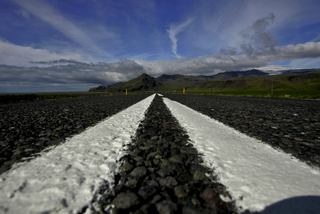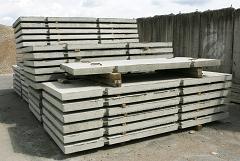The Russian Cabinet has imposed a limit of 85.44 tons on the export of sturgeon caviar in 2000.
Published:
8 August 2000 y., Tuesday
This includes 28.44 tons obtained in 1999. A quota of 220 tons, which includes 50 tons made in 1999, has also been imposed on the export of products other than caviar made from sturgeon fish, the Government Information Department reports.
The quota does not cover live fish and sturgeon-fish products, including caviar, obtained by fish farms from their own shoals. The quota includes what Russian fish farms obtain from fish caught in the Volga, as well as 2.5 tons of the Azerbaijani export quota and 4.44 tons of the Turkmen quota of caviar, in particular 1.44 tons harvested in 1999, and 20 tons of sturgeon products of the Azerbaijani quota.
Russia exported 120 tons of black caviar in 1998. The State Fishing Committee predicted a decrease in the harvest at the start of this year's fishing season. Russian fishermen may catch 560 tons of sturgeon in the Caspian drainage area, which is 62 tons below last year's quota and just over one-half of the 1998 quota, which exceeded 1,000 tons.
The harvest from the fishing season totaled just over 100 tons of beluga, sturgeon and stellate sturgeon, or below 20% of the quotas. Experts attribute this decrease to the operation of numerous hydraulic power stations on the Volga and a sharp increase in industrial waste injected into the river.
Šaltinis:
Interfax
Copying, publishing, announcing any information from the News.lt portal without written permission of News.lt editorial office is prohibited.
The most popular articles
 The Kakheti Regional Roads Improvement Project for Georgia aims to reduce transport costs and improve access and traffic safety for the Kakheti regional roads.
more »
The Kakheti Regional Roads Improvement Project for Georgia aims to reduce transport costs and improve access and traffic safety for the Kakheti regional roads.
more »
 “Don Quixote – Made in Romania” brought the curtain down on the Cultural Days of the European Central Bank (ECB) 2009, with an expressive combination of tap dance, folklore, pantomime and martial arts.
more »
“Don Quixote – Made in Romania” brought the curtain down on the Cultural Days of the European Central Bank (ECB) 2009, with an expressive combination of tap dance, folklore, pantomime and martial arts.
more »
 The Latvian Finance and Capital Market Commission permitted Mr. Vladimir Antonov, who is also the main shareholder of AB Bank SNORAS, to acquire and manage up to 33 per cent of the shareholding of the Latvian bank AS “Latvijas Krajbanka”.
more »
The Latvian Finance and Capital Market Commission permitted Mr. Vladimir Antonov, who is also the main shareholder of AB Bank SNORAS, to acquire and manage up to 33 per cent of the shareholding of the Latvian bank AS “Latvijas Krajbanka”.
more »
 On October 30, the French-capital company “Eurovia Lietuva” opened a new asphalt plant near the capital city Vilnius. The company invested EUR 3.5 million into the new factory which is located near the old manufacturing facility to be closed soon.
more »
On October 30, the French-capital company “Eurovia Lietuva” opened a new asphalt plant near the capital city Vilnius. The company invested EUR 3.5 million into the new factory which is located near the old manufacturing facility to be closed soon.
more »
 During the extraordinary general shareholders' meeting of AB Bank SNORAS, which took place on 5th November 2009, it was decided by additional contributions to increase the authorized capital of the bank by more than LTL 88 million.
more »
During the extraordinary general shareholders' meeting of AB Bank SNORAS, which took place on 5th November 2009, it was decided by additional contributions to increase the authorized capital of the bank by more than LTL 88 million.
more »
 The French-capital company “Eurovia Lietuva” opened a new asphalt plant near the capital city Vilnius.
more »
The French-capital company “Eurovia Lietuva” opened a new asphalt plant near the capital city Vilnius.
more »
 “Banking Market in the Baltics 2009-2011, CEE Banking Brief” report recently presented by Intelace Research states that, despite the current economic recession, Estonia, Latvia and Lithuania are still among the most advanced banking markets in Central and Eastern Europe (CEE).
more »
“Banking Market in the Baltics 2009-2011, CEE Banking Brief” report recently presented by Intelace Research states that, despite the current economic recession, Estonia, Latvia and Lithuania are still among the most advanced banking markets in Central and Eastern Europe (CEE).
more »
 The Bank of Lithuania permitted AB Bank SNORAS to include in the second level capital LTL 72.5 million (EUR 21 million) worth emission of termless debt securities distributed via non-public distribution on 31st August this year.
more »
The Bank of Lithuania permitted AB Bank SNORAS to include in the second level capital LTL 72.5 million (EUR 21 million) worth emission of termless debt securities distributed via non-public distribution on 31st August this year.
more »
 The remit of the Parliamentary Committee set up to examine the financial crisis was debated at its first meeting on Wednesday (4 November).
more »
The remit of the Parliamentary Committee set up to examine the financial crisis was debated at its first meeting on Wednesday (4 November).
more »
 Europeans can now use direct debit from their home account to pay bills anywhere in the EU.
more »
Europeans can now use direct debit from their home account to pay bills anywhere in the EU.
more »